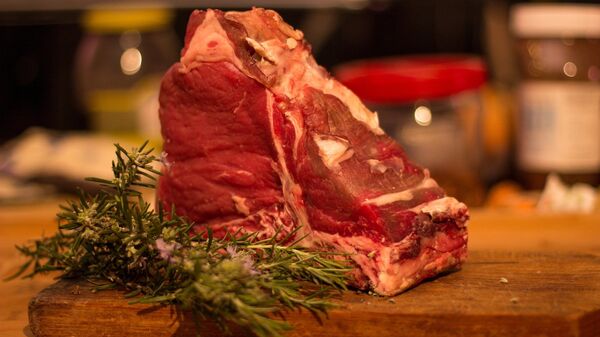EU officials earlier this year repeatedly said that agricultural products would not be part of any trade negotiations with the United States. In April, Trump said Washington would impose punitive tariffs on the EU if the trade deal did not include the agricultural sector.
"The agreement we sign today will lower trade barriers in Europe and expand access for American farmers and ranchers. In year one, duty free American beef exports to the EU will increase by 46 percent. Over seven years, they will increase by another 90 percent. In total, the duty free exports will rise from $150 million to $420 million - an increase of over 180 percent", Trump said.
According to the office of US Trade Representative Robert Lighthizer, Washington, as part of the deal, agreed to drop a WTO complaint, filed by the United States in 2016, against the EU ban on the use of hormones in cattle production.
Lighthizer signed the agreement with EU Ambassador to the United States Stavros Lambrinidis and deputy head of mission for the Finnish presidency of the Council of the EU, Jani Raappana, the USTR’s office said in a statement.
Trade relations between Washington and Brussels deteriorated when Trump imposed import tariffs on steel and aluminum imports from the EU worth $7.4 billion.
The move prompted disagreements on industrial metals, cars, and agricultural products.
On 25 July of last year, after a period of heightened trade tensions, European Commission President Jean-Claude Juncker and Trump issued a joint statement, agreeing to work toward "zero tariffs, zero non-tariff barriers, and zero subsidies on non-auto industrial goods",
The sides also agreed to increase trade in chemicals, pharmaceuticals, medical products and soybeans.

